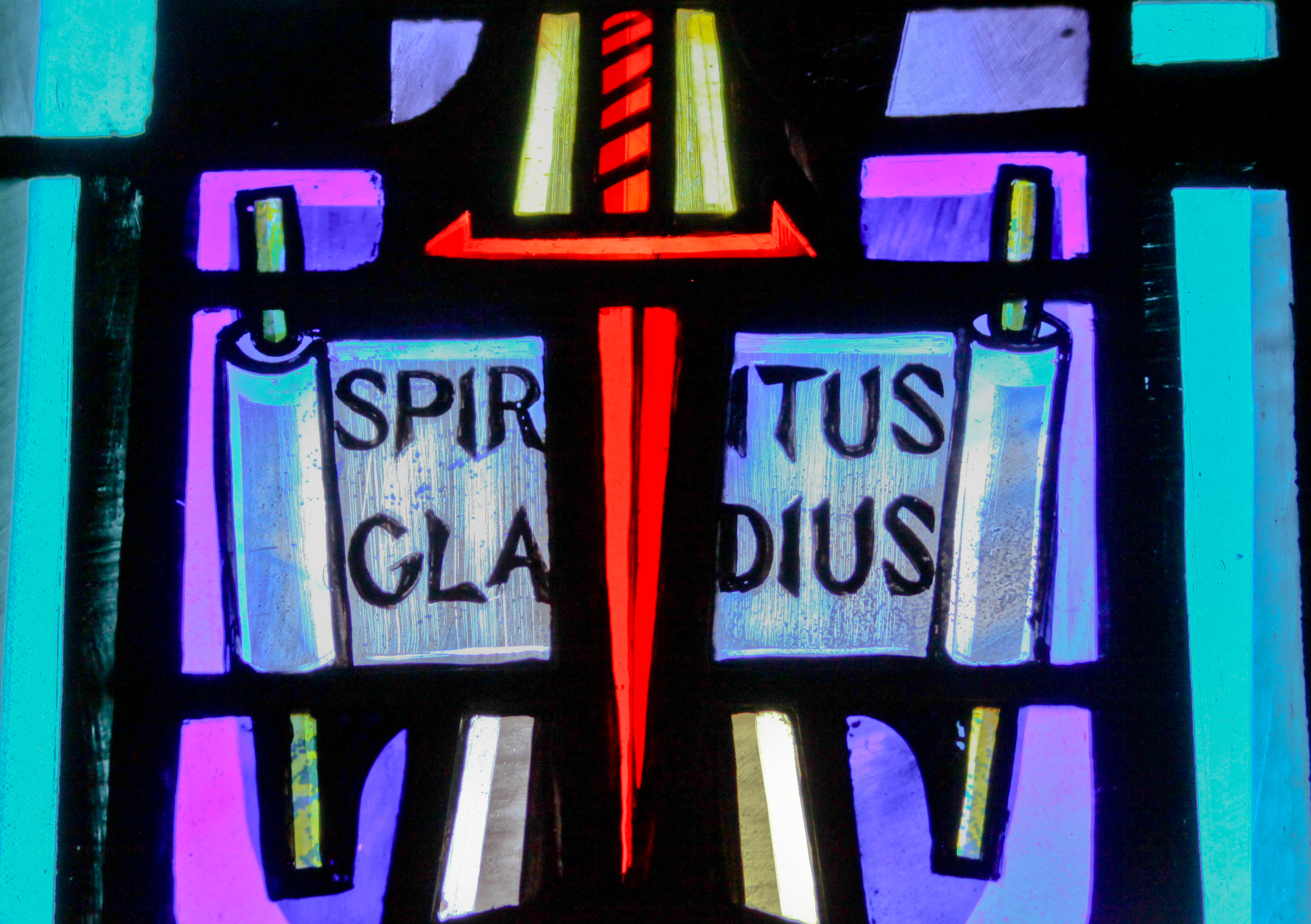As is so often the case, my friend Rick is right.
Presiding Bishop – Heal thyself!
Turns out that five Anglican primates have announced their intention to boycott the 2008 Lambeth Conference. (I wish they would not. Even if it turns out Lambeth 2008 is a waste of time and effort – at least give it one last chance if only to prove that playing by the rules is a waste of effort and time.) Presiding Bishop Katharine Jefferts Schori of the Episcopal Church had something to say about this:
The gathering will be diminished by their absence, and I imagine that they themselves will miss a gift they might have otherwise received… None of us is called to ‘feel at home’ except in the full and immediate presence of God. It is our searching, especially with those we find most ‘other,’ that is likely to lead us into the fuller experience of the body of Christ. Fear of the other is an invitation to seek the face of God, not a threat to be avoided.
Insofar as any bright eight year old can understand this I offered the following response at Midwest Conservative Journal by Christopher Johnson:
A painfully obvious question is whether she regards orthodox Anglican (arch)bishops as ‘Other’. (Just as rhetorically she assumes they regard her/ECUSA as ‘Other’.) And if so – are they a threat to be avoided? Does she think that searching with these orthodox/conservative Anglican leaders she and the TEC will be led into a fuller experience of the body of Christ?
We may surmise (such as from the aforementioned NPR interview) that her answer would indeed be ‘yes’. But we may also surmise that she already knows what this fuller experience of Christ looks like. She already knows where the search will take them. We may then challenge her and TEC – is it possible that by engaging the ‘Other’ (where ‘Other’ = Anglican leaders who differ strongly with you, those who may boycott Lambeth) your search will lead *you* (and TEC) somewhere you do not expect? such that you might need to do some repenting? (Fairness requires we raise the possibility that both ’sides’ will be led somewhere new that none of them expect.)
Her invocation of ‘Other’ may be rhetorical hypocrisy. (My guess it is.) She expects ‘them’ to walk with her (as ‘Other’ to them) but is not open to the reverse. But perhaps her rhetoric is somehow sincere. But even then is she sincerely open to its implications?
I am reminded by a famous question often asked by Linus the theologian from the cartoon “Peanuts”. “Has it ever occurred to you that you could be wrong?”
(Via http://livethetrinity.net/feed/atom/.)





7 thoughts on “Rick is Right”
Congrats on your anniversary – my wife and I are approaching our 40th (nearly our 120th since we celebrate three anniversaries a year).
I disagree with your written opinion that your friend is right in his reading of the Bishop. I see her as being open to those who disagree with her. I disagree with the conservative position on the issue too so you may want to ignore what I say. On the other hand, maybe you are being sarcastic in your statement about your friend’s being right!
I have written a more complete other response here: http://stenagmois.blogspot.com/2008/02/other.html
Thanks Bob. No, I wasn’t being sarcastic at all. I think Katherine has not been very open about really listening to those who disagree with her. She will let them talk, but she does not seem to listen. Of course, the same can be said on the other side, but I find this “let’s talk while I keep moving us towards my goal anyway” approach most common among the so-called progressives.
Fair enough, Chris – I have not read much of her work. One of my employees indicated to me that she is not always appearing consistent. The problem of ‘continuing toward a goal anyway’ is a very difficult power issue. 15 years ago, I would not have accepted my own position today, but do I have a goal? – I hope I have no goal outside of her own statement that one can only feel truly ‘at home’ in the presence of God.
This is what I have learned through the dwellings imagery in John’s gospel – and this home is where I live (yet not I). It seems to me that through the gate of the cross, this home is open to anyone of any persuasion – and I cannot judge anyone who claims entry in that name I have come to know.
I more or less agree with the sentiments you just expressed Bob. At issue, however, is not who can enter the home, all are called, but what do we do once we have entered this household? Do we remain the same or are we to be open to be transformed? And if transformed, by what and in what ways? These, it seems to me, are the harder and most pertinent questions.
As Chris knows from our conversations at the AABS and SBL, I am painfully moderate in my views in the Episcopal church. I find it hard to watch the liberals plow regardless of what others think while the conservatives dig in to their own theologically pure enclaves.
That being said, I don’t think either side is served when doubt the sincerity ‘other’. The PB says she is willing to continue the conversation with those with whom she disagrees, and I think we do a disservice to the Anglican Communion when we don’t assume she is being honest. Even though some people may not think she is hearing the other side, we cannot know that for sure. And if she doesn’t hear, we cannot immediately assume it is because she doesn’t want to.
The same thing goes for the other side. I have my suspicions about the motives some of the leaders of the conservative movement. But I am going to continue to take them at their word. When we start reading things into what others say it is an impediment to conversation. Let’s assume good will in the other.
(I happen to agree, however, that the term ‘other’ is way over-used by those on the left. It is one of those terms that makes me cringe.)
By the way, thanks for sharing the photo in the next post. I had never seen Dan Haggerty in a sweater vest before.
Bob and Kevin,
Without getting into what (here would be) the “side issues” of what we think about same-sex relations – because the issue here is the Presiding Bishop and her use of rhetoric – I first express my appreciation for your responses. And to Chris for quoting me – dang!
1) I have not read everything she has said/written but what I have read does leave the strong (unavoidable?) impression that she has pretty much already made up her mind on these issues. She (“we”) are right and they are wrong. In and of itself – so what no biggie. But for her then to speak of “gosh they are missing out on a gift” (what gift? dare we ask?) and “we must not fear the ‘Other'” and so on reeks of what I can only call rhetorical hypocrisy.
2) And so for Kevin to express concern about “doubting the motives of others” – I understand and appreciate the concern. But there is a point at which repeated patterns of speech and behavior leave little room for anything but doubt. I do not doubt her motives just because… well just because. I would love to trust her sincerity. I really would. I am quite capable of respecting and trusting people with whom I disagree strongly on big theological/ethical issues. But I find both difficult if not impossible with respect to this specific person.
3) I would like to think that “progressives” and “moderates” and “conservatives” (or whatever titles they/we prefer) alike can agree on the principle that it is not enough to be “right” but to use “right” means to pursue the “right” cause. That having been said… I would like to think those who believe the Presiding Bishop (and the dominant leadership of TEC) are “right” nevertheless are often dismayed by the methods they employ.
These, it seems to me, are the harder and most pertinent questions.
I agree completely and they are the critical questions of how we really respond to our Lord through the gift of his death for us. What I have personally discovered is that I could not have judged in advance how God in Christ would respond to me – so I trust him for others who claim his refuge and him as dwelling place. (Psalm 90 verse 1 – our study tonight). Let me say that living in him by the Spirit, through the mediation of the written word and in part through our traditions, my reading of the written word has changed – not to maximalism or minimalism or inerrancy or any other superficial doctrine, but to recognition – seeing in the written word the covenant, the dialogue, the presence, and the invitation, and I am not disappointed.